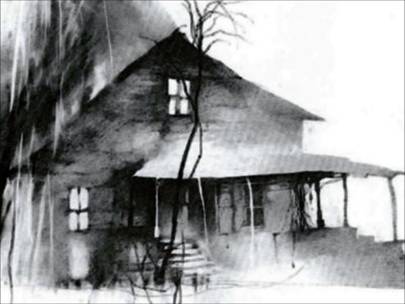American Gothic: Homesick Horror

The Gothic trend in American literature officially begins with the publication of Charles Brockden Brown’s 1798 novel, Wieland. But it has its roots in the dire universe depicted in Puritanical texts such as Jonathan Edwards’ Sinners in the Hands of an Angry God (1741) and in later colonial captivity narratives and slave narratives. Certainly a subversive challenge to the institutions and official narratives of America as a democratic nation, the literary tradition of horror and the Gothic imagination has had a strong influence on American literature, and has inspired writers from Edgar Poe, to Cormac McCarthy, to Joyce Carol Oates. We will study representative works by these and other major authors in the context of what we call “homesick horror.” Starting with ideas from Sigmund Freud, Anthony Vidler and others, this class considers homesickness as a cornerstone of the (architectural) uncanny and as the imaginative center of what we will loosely call the “haunted house” narrative. We will feel our way through sick, seeing, and beckoning homes: diseased structures shaped by troubled perspectives and characterized by irrational angles and impossible relations between interior and exterior. Simultaneously, we will think about homesickness in the more conventional sense of the word, as we examine the narrative importance of nostalgia and the compulsion to return to safe spaces and slaughterhouses alike. The course will include films, television, stories, poetry, drama, and at least one novel, most likely Shirley Jackson’s The Haunting of Hill House. This course also reviews the elements and key terms essential for literary analysis, and prepares students to write and think critically, and to revise their work.
REFLECTIONS
This is a paired course in REFLECTIONS. Students take it for credit in English 101 – Introduction to College English and 103 – Literary Themes. While the competencies for each section are taught and evaluated separately, the instructors have designed the course as an integrated seminar. The texts and assignments have been chosen to help students to improve skills in writing, textual analysis, and the exploration of themes across a variety of texts and materials.
